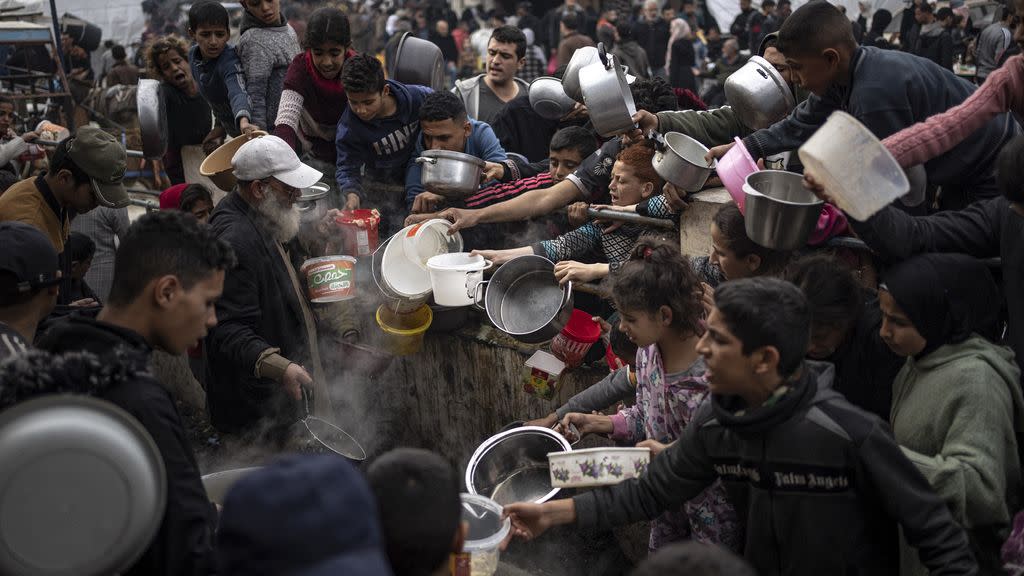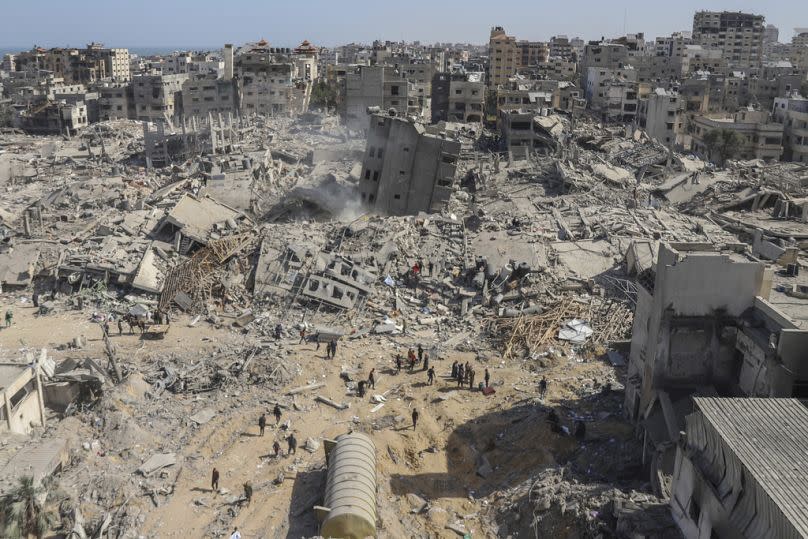UN calls for €2.6 billion in funding to urgently help 3 million Palestinians in need of food

A top United Nation official appealed for €2.6 billion on Tuesday to provide desperately needed aid to 3 million Palestinians, stressing that preventing a looming famine in war-torn Gaza requires not only food but sanitation, water and health facilities.
Andrea De Domenico, head of the UN humanitarian office for Gaza and the West Bank, informed reporters that extensive efforts are needed to restore these essential services and meet basic standards, which cannot be accomplished during military operations.
He highlighted the widespread destruction of hospitals, water and sanitation facilities, homes, roads, and schools, noting that not a single university remains standing in Gaza.
De Domenico explained that Israel's recent significant military operation at Shifa Hospital, Gaza's largest medical facility, was so devastating that the hospital had to close. He cited the destruction of an MRI scanner used for medical diagnoses as an example, questioning the military objective behind such actions.
He described a scene of horror at the hospital, with UN and Palestinian colleagues assisting people in identifying family members from the remains of corpses by their shoes or clothing.
According to experts on hunger crises, famine is imminent in northern Gaza, where 70% of the population is experiencing catastrophic hunger. A recent report warned that escalating conflict could push half of Gaza's 2.3 million residents to the brink of starvation.

De Domenico acknowledged Israel's efforts to facilitate humanitarian assistance into Gaza, pointing to the opening of a northern crossing, critical for areas facing severe famine, and the opening of bakeries there.
However, he emphasised that the UN continues to urge Israel to take further action.
De Domenico highlighted Israeli refusals and delays in granting UN requests for aid convoys to enter Gaza. During the week of April 6-12, 41% of UN requests involving Israeli checkpoints were denied. Additionally, last week, a convoy from UNICEF and the World Food Program was caught in crossfire in a supposed safe area.
He explained that convoys often face lengthy delays at checkpoints, receiving clearance only in the afternoon, too late to safely complete deliveries before nightfall. De Domenico suggested that Israeli authorities exploit these delays to maintain control over aid operations while appearing cooperative.
"We are in continuous dialogue with them, aiming to resolve issues and deliver aid," he stressed.

